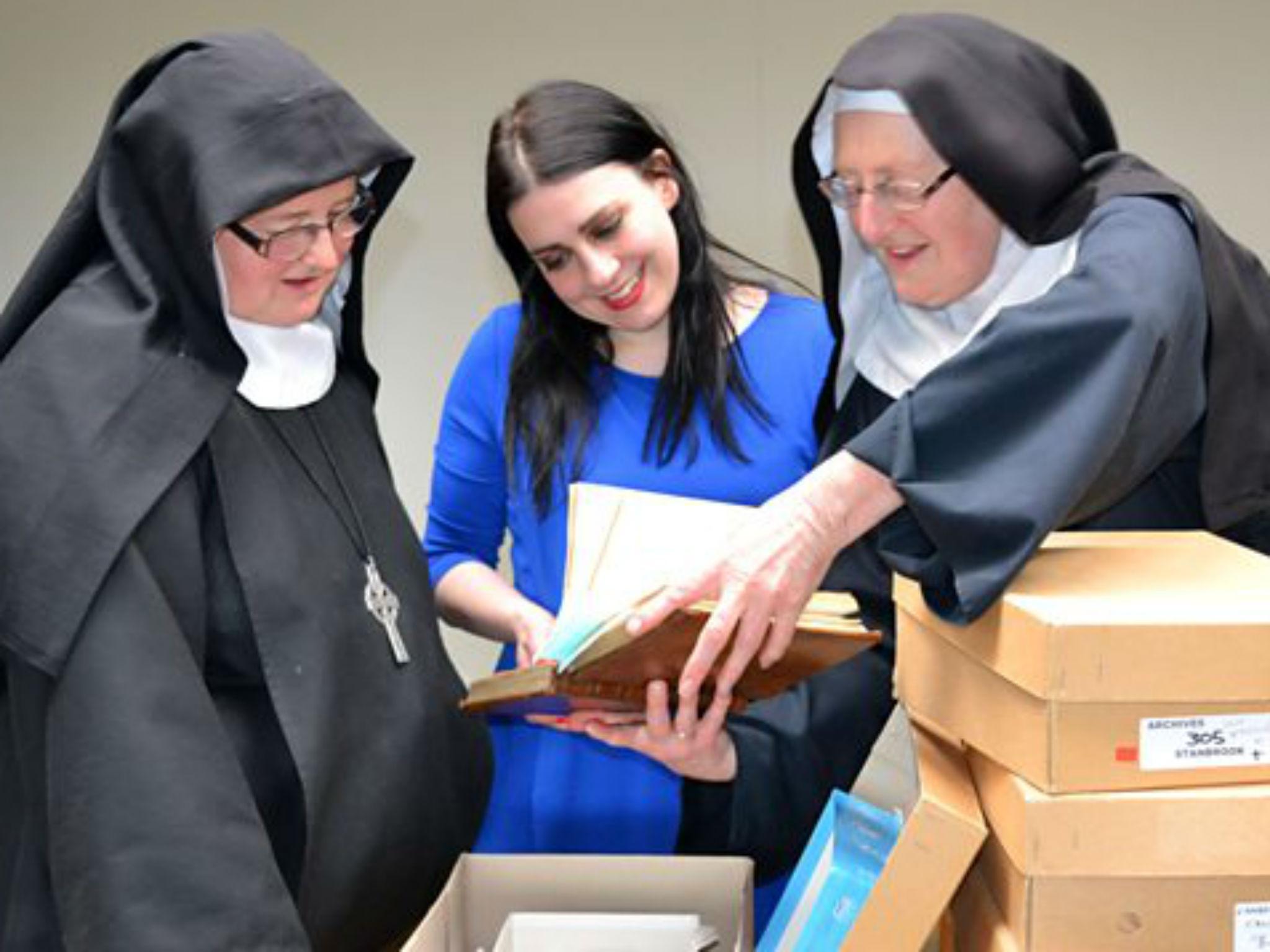The Search for the Lost Manuscripts: Julian of Norwich, BBC Four, TV review: 'An interesting tale, but not one that well told'
Sean O'Grady is underwhelmed by a documentary about Julian of Norwich, the world’s first trendy (female) vicar, but enjoys The Job Interview

Call me a Philistine, but “Julian of Norwich” always sounded to me like a hairdresser looking after the more mature customer, rather than the author of one of the most important works on divinity. How wrong of me, and Dr Janina Ramirez put me firmly in my (philistinic) place in The Search for the Lost Manuscripts: Julian of Norwich. Julian, you see, was no blue rinse crimper of East Anglian matrons, but rather a late medieval – and female - religious hermit, a beneficiary, if that’s the right expression, of a vision of Christ. Through this she became, in effect, the world’s first trendy vicar.
The church at that time, you see, was a fairly fundamentalist, brutal, fiery sort of institution, one that made much of eternal damnation and going to hell. Looking back from the vantage point of the 21st century, it seems clear that this was mainly to scare the peasantry into handing over a tenth of their income to the priesthood. That’s what I call a “project fear”.
The violent attitude seems to be summed up in the name of a senior cleric of the time, Henry le Despenser, the Archbishop Tutu of his day, I guess, but known as “The Fighting Bishop”, more than happy to burn heretics and put lollards to the sword. Despenser was up for any sort of scrap, up to and including putting down the Peasants’ Revolt.
By contrast to these patriarchal cruelties, Julian of Norwich – she took her name from the church of St Julian she lived in – came up with the rather modern idea of a humane, loving God, as summed up in the celebrated quote: “sin is behovable, but all shall be well, and all shall be well, and all manner of things shall be well”. Meaning: there’s a lot of wickedness about, sure, but God will sort it. Or, as she goes on: “God is the goodness that cannot be angry, for he is nothing but goodness.” She even questioned the existence of hell. Heavens above.
Having survived the plague, Julian of Norwich claimed to have had a profound spiritual experience, the contents of which were written up by her in 1373, and are now known as “the Revelations of Divine Love”. This was dangerous stuff – feminism hadn’t quite got off the ground in the 1370s – and hers was in effect a secret and lost text until the 17th century when a group of nuns who had escaped to France had a copy of it printed. Fleeing the religious persecution visited upon English Catholics at the time, these were, literally, nuns on the run. About 100 years ago the text was discovered once again, published in modern fashion by Methuen, and has been in print ever since, a canon of English literature.
So an interesting tale, but not one that well told, I have to say. In the first half of the “search” the viewer learned much more about Dr Janina than about Julian. Dr Janina, we were repeatedly told, studied English at Oxford, found everything about Julian “amazing”, and we were treated to seeing her getting her kids ready for school, cycling around Oxford (natch), striding purposefully through Norwich and, in an especially ludicrous scene, the diminutive don appeared perched atop a donkey, looking like a sort of midget Madonna on her way to give birth in a stable.
The idea of a harsh faith being reformed into a more caring one has some interesting echoes for today’s world, but there was none of this and very little theology in the documentary. Speaking as a non-philistine, I found this a pity. Dr Janina needs to search out the divine televisual revelations of Lucy Worsley and Mary Beard if she wants to become venerated.
I much enjoyed The Job Interview. Contrary to my expectations, it was far from car-crash TV, and all the applicants who agreed to have their job search put on the telly – something of a high-risk option – acquitted themselves well. So when they made a mistake, it was all the more telling, and the interest in the show is in wondering if the candidate you’d pick is the same as the one the prospective employers hire. I think I knew that the girl from the Wirral who was after a job “extolling the virtues of Liverpool” was doomed when she wrote “The Beetles” [sic] on the whiteboard, and topped that by adding that Liverpool is just great because it’s near Manchester and Chester. Chester! She didn’t get the job.
Subscribe to Independent Premium to bookmark this article
Want to bookmark your favourite articles and stories to read or reference later? Start your Independent Premium subscription today.

Join our commenting forum
Join thought-provoking conversations, follow other Independent readers and see their replies
Comments